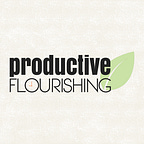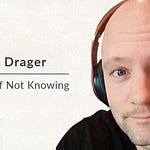We may think creativity and grief wouldn’t normally go together, and yet, creativity and grief are very much related. Cath Duncan and Kara Jones join Charlie to talk about how grief and creativity are related, and why it’s important to do our grief and creativity our own way.
Key Takeaways:
[3:34] - Cath introduces herself and how she moved from her previous work to grief work. She had her own experiences of grief and loss that changed her and taught her what was going to be important in her work, and that helped to guide her journey to her current work.
[6:08] - Kara shares her journey: she used to be an artist and a writer prior to the grief experiences that slammed her family. For her, the connections and work that came after the grief were really an organic experience. When finding reasons to get out of bed after loss, she made connections to her physical body that carried on, and her work as an artist. It was very personal, but eventually translated to connections with other people.
[9:06] - As we experience loss and death and grief, we can choose to destroy ourselves or we can choose to create. Charlie, Cath, and Kara discuss the historical connection between these concepts as well as Cath and Kara’s current work. Kara views it as sort of a continuum, where grief and creativity are ends of a spectrum, and there’s a lot of stuff happening in between. Cath suggests that we can’t have grieving without creativity.
[12:35] - Tentative definition of grieving: a social and creative meaning-making process. We all have meaning-making experiences, and we have to string them together in stories to make sense of what’s going on, how we respond, and who we are. This sort of sense of security is called the Assumptive World. A great loss can shatter this world, and grief is the process of looking at these shattered assumptions and doing a more deliberate review of priorities.
[16:15] - Cath and Kara discuss an expanded definition of creativity as it relates to grief. It goes beyond something analytical. Kara talks about some of the other aspects of everyday life that can be affected by grief, and how different people react creatively.
[20:00] - “The Myth of the Hierarchy of Loss” - Cath talks about this idea of considering socio-cultural ideas of grief and loss to try to qualify or rationalize reactions to different losses. The basic idea of the myth of the hierarchy is that some losses are more important than others, some we don’t talk about, some that society stigmatizes, and where someone thinks they get slotted into the hierarchy (whether by themselves or by others) “tells” them how much they’re allowed to grieve, how they can express it, or how long they can express it.
[23:05] In their class, Cath and Kara teach about the relationships between grieving and shame. Shame, or the idea that we’re faulty or unworthy of belonging, can weave its way into some of the answers that we are considering for our new meanings. They consider questions like where shame comes from, and what sustains shame. A lot of people have experiences that sit outside of the “normal” or “preferred,” and that’s alright.
[30:50] - This definition of creativity is not necessarily making art, but the rather the ability to envision something else. Any time we’re making something, we’re being creative. It’s not the form; it’s the process.
[33:35] - Because we’re human, a lot of us carry around unprocessed grief. In society, we may not always feel like we have adequate time to cope with our grief. Charlie invites Kara and Cath to give an invitation for the listeners in these moments. Kara invites us to explore giving ourselves permission to do what we need to do. Related to that, Cath invites us to not explore grief. If you or someone you love is in denial, that can be okay. You don’t have to perform grief in the ways that others are requiring you to.
[40:05] - Cath discusses some of the genderization of grief with regards to the performance of grief. Along with this, it is important to remember that there’s not only one way to do it. This may be difficult in families where we want to all be experiencing our grief the same way. It is important for couples and families to recognize that people might be having very different experiences and ways of expressing themselves.
Mentioned in This Episode:
Creative Giant Campfire Facebook Group
Remembering For Good: The Workbook
Mrs. Duck and the Woman, by Kara L.C. Jones
1000 Permissions Granted, by Kara L.C. Jones (PDF)
They Were Still Born, by Janel C. Atlas
Big Magic, by Elizabeth Gilbert
Episode 58: How to Heal After the Loss of A Partner with Kristin Meekhof, on Productive Flourishing












